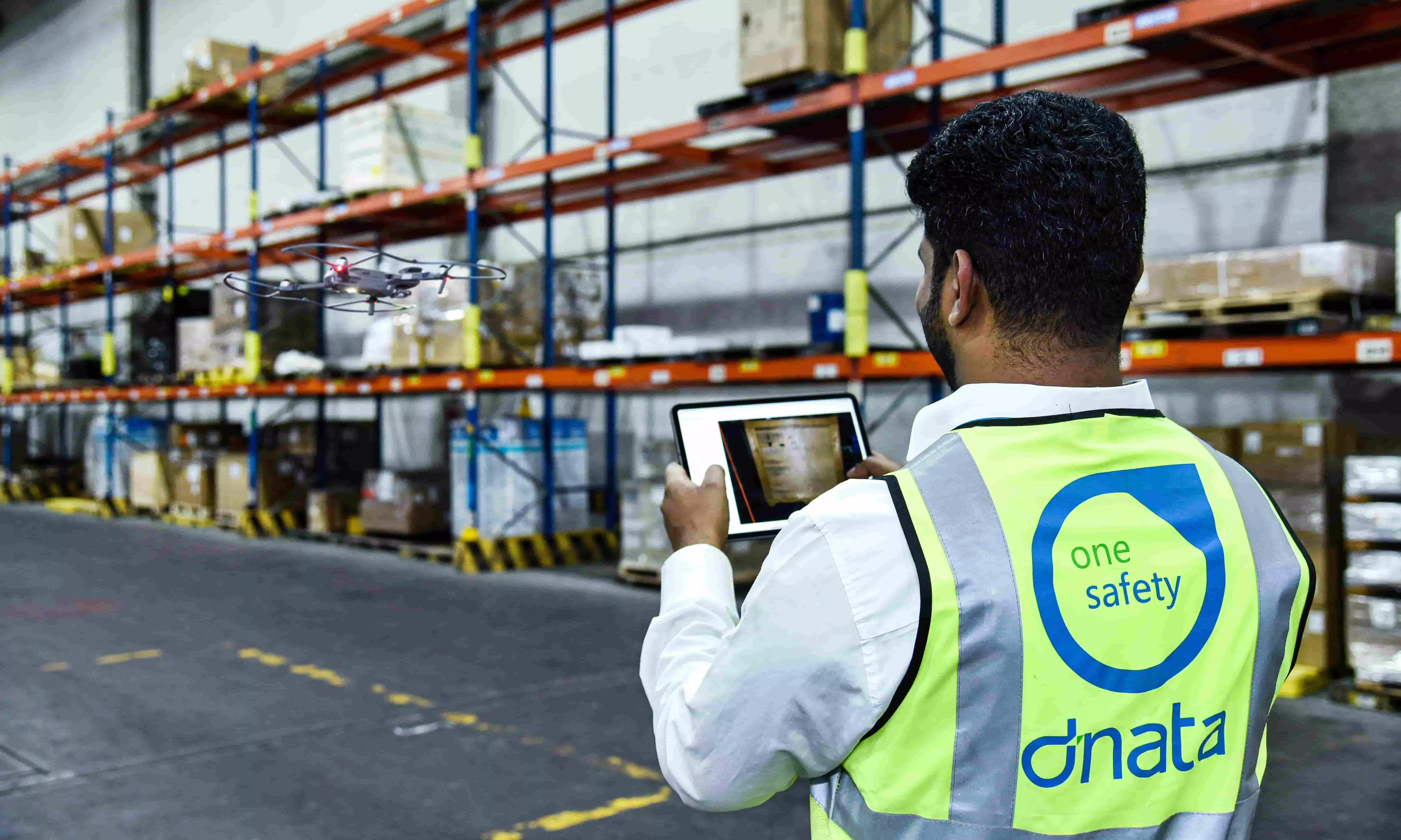dnata integrates autonomous drones for cargo operations in Dubai
Gather AI enables drones to map the environment, collect inventory data, count cases, measure temperature, and read barcodes using only cameras.

dnata announced the integration of autonomous drones into its cargo operations in both Dubai International (DXB) and Dubai World Central (DWC) airports in UAE, enhancing operational efficiencies in inventory monitoring using computer vision technology.
“dnata was the first cargo services provider to introduce drones to its cargo operations in the UAE in 2021,” reads the release.
Gather AI, the software partner of dnata in this project, enables the drones to map the environment, collect inventory data, count cases, measure temperature, and read barcodes using only their cameras, without the need for any additional active infrastructure. The drones are paired to a tablet device providing live inventory data. The collected data can be viewed directly on the tablet or the web dashboard, via a user-friendly application.
The drones have been integrated into the day-to-day workflow and warehouse inventory processes. On average, dnata’s drones monitor some 1,800 shipments daily with 99% accuracy across 2,400 rack locations.
Key results include a 20 percent reduction in processing times on the rack inventories and over 99 percent accuracy in shipment tracking.
With drones, dnata is replacing the need for mobile elevating work platforms (also known as ‘cherry pickers’), and the manual way to doing the inventory checks which would take 48 hours to finish in dnata's 33,000 sq mt facility at DWC. The drones supported by computer vision technology can complete the same operations at the facility in three hours and this operation is repeated every 24 hours.
“With routine tasks automated, human resources can be allocated to more complex responsibilities, ultimately improving overall workforce productivity,” it reads.
The warehouse operators also informed that the drones and technology have transformed the operations drastically and improved customer service as it not only reduced the number of errors but also removed the need to go back to the cargo on different racks to check the airwaybill or pallet number in case of customer inquiries.
The drone operations are initiated at the dnata facilities that don't have Automated Storage and Retrieval Systems (ASRS) which doesn't require a separate inventory check.
dnata has implemented these drone operations in these Dubai facilities since September 2023 after two years of collaboration and feedback with Gather AI. Since then, the drones have completed 15,800 missions and 560,000 scanning of locations.
dnata also plans to start sharing the data and information generated by these drones with the customers to improve the visibility of cargo.
The drones can operate at temperatures between 0 Celsius and +50 Celsius degrees within a closed environment, enabling dnata to take advantage of the technology in its state-of-the-art cool chain facilities, too. dnata has plans to introduce them at further stations across its global cargo network in the next years.
Guillaume Crozier, dnata’s senior vice president for UAE cargo and global cargo strategy, said: “The precision and reliability of these drones have surpassed our expectations, leading to a transformative impact on our efficiency levels. These advancements have a direct positive impact on our airline customers who can benefit from heightened accuracy, reduced turnaround times and smoother logistics operations."
Crozier informed that while drones along with computer vision technology will be soon implemented in their Machester facility, the next use case for these drones and technology will be to help dnata in dimensioning the cargo and building the pallets up.
Sankalp Arora, CEO & co-founder of Gather AI, said: "Our autonomous inventory drones are not merely futuristic concepts; they are operational game-changers today, enabling real-time transparency into the inventory and air cargo processes."


